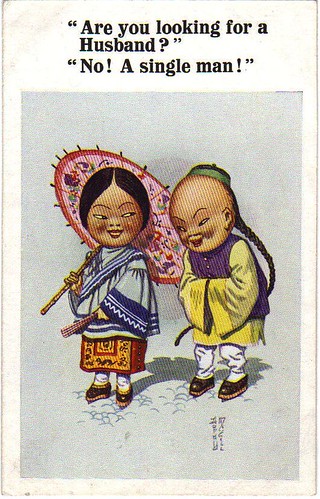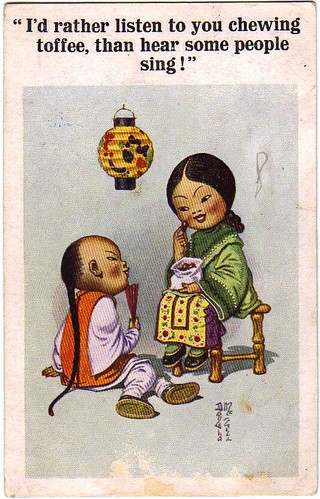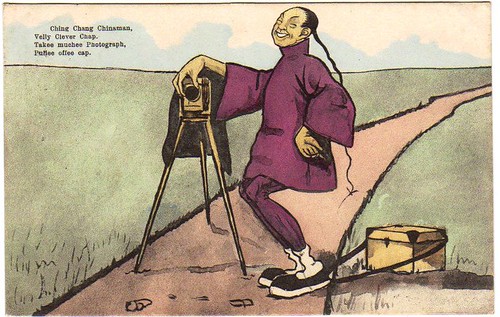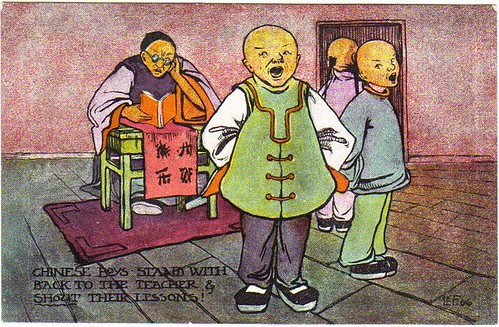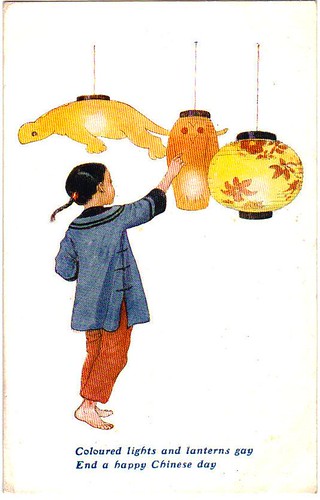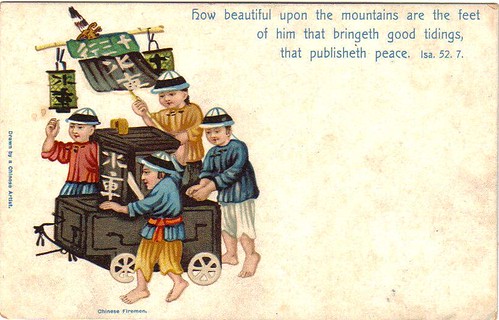 There is a lot of treason to be found in the vicinity of LOC number DS777.5195.W34 in the Harvard-Yenching library. It’s Wang Jingwei (汪精衛) territory, infamous puppet lord of wartime occupied China, and reviled former patriot turned running dog of Japanese imperialism. He is also known as Wang Zhaoming (汪兆銘 Wang Chao-ming), Wang Jingwei being his pen name. On the shelves nearby we find books by and on his underlings Chen Gongbo and Zhou Fohai, equally reviled figures who lived long enough to go on trial for being Chinese traitors, or hanjian (漢奸).
There is a lot of treason to be found in the vicinity of LOC number DS777.5195.W34 in the Harvard-Yenching library. It’s Wang Jingwei (汪精衛) territory, infamous puppet lord of wartime occupied China, and reviled former patriot turned running dog of Japanese imperialism. He is also known as Wang Zhaoming (汪兆銘 Wang Chao-ming), Wang Jingwei being his pen name. On the shelves nearby we find books by and on his underlings Chen Gongbo and Zhou Fohai, equally reviled figures who lived long enough to go on trial for being Chinese traitors, or hanjian (漢奸).
In the Harvard-Yenching library’s English language collections, this section houses an unusual volume only a few pages in length:
Will of Wang Chao-Ming
Translated by Bonggi Kim
The Korean Republic
Seoul, Korea
It opens, “This translation of Wang Chao-ming’s will into English is intended to look into his cause in collaborating with imperialist Japan.”1 Following a short introduction is the dozen page translation of what claims to be Wang Jingwei’s final written testament. It is signed October, 1944 — he would die in November, before Japan’s defeat and the text is now known as “My Final State of Mind” (我最後之心情), a document whose authenticity has been contested ever since the original was first published in the Hong Kong Chunqiu (春秋) in early 1964.2 Its publication was also widely reported in Japan, including the English language Japan Times.3
Justifying Collaboration
This text attributed to Wang, if real, is of historical interest because its author offers detailed justifications for collaboration with Japan, and writes about his plans for the postwar period.4 “We planned to hand over to the Nationalist government the areas recovered from the enemy occupation,” he writes, though at the time, the “enemy” Japan is his military ally. Using the famous “Shield” argument used to justify Vichy collaboration with Nazi Germany, Wang goes on to say, “the Nanjing government entered into an alliance with Japan as a means to fight for lost sovereignty and get as many materials as possible under Japanese occupation.”5 He writes of his successes so far in supporting Japan’s war effort including the overturning of unequal treaties, recovering foreign concessions, and claims that he has “not tolerated any foreign intervention in domestic affairs…”6 He worries about the fate of Manchuria, which Japan refuses to return to China, but claims that he must press on in his efforts. “I am well aware of the forthcoming surrender of Japan,” and is optimistic since the Japanese show renewed sincerity in their negotiations with him.7
In his closing, Wang even expresses hope for the future of Sino-Japanese relations after Japan’s defeat, which will ultimately hinge upon a thorough enlightenment of the Japanese people and the magnanimity of the Chinese government.8
Kim Bonggi – The Korean Translator
The translation of this text is, perhaps ironically, interesting for a similar reason. Following the copy of the translation, we find attached a letter from the translator, addressed to the chief librarian of the “University of Colombia” in New York.9 In it, Kim writes with what can only be interpreted as a significant degree of sympathy for Wang. In the letter, dated August 10, 1964, we find the following passage.
Wang, A leading political figure in modern China, played a vital role in the formation of the country. His collaboration with the [sic] however, tarnished his image as the great patriot with lifelong devotion to his country.
Many Chinese people, in fact, did not hesitate to call him a traitor, but others think that he was forced to bow to the inevitable and that what he did was a risk that had to be assumed in the interests of the Chinese people.
Whether servile collaboration with the Japanese militarists is precisely the term for the acts of Wang is still open to debate, but it is not difficult to suppose that his actions proceeded from the difficulty of finding solutions to the problem of a war that had been dragging on with no end in sight. He strove to regain the lost sovereignty of the Chinese people, but he fell short of the affecting it despite his determination. Even his death was at one time rumored to be an unnatural one.
Whatever his real motive was, it cannot be denied that the last words of Wang himself will be helpful in determining why he made the decision to establish the Nanking government with the support of the invading Japanese. As far as his will is concerned, it is apparent that he did not act for personal gain, but rather with the hope that he could restore the lost land of China through negotiations—not through force of arms against the overwhelming odds with which China was forced at the time.
In order to avoid attaching undue significance to his real motives which resulted in the establishment of the Nanking regime in collaboration with the invading Japanese militarists, I had better refrain from commenting on the issue; nevertheless, I sincerely hope thet [sic] the material which I send you will be of some interest in helping your studies on matters that concern the modern history of China.
Kim Bonggi, born in 1921 or 1920, was one of the founders, in 1953, of the English language newspaper, The Korean Republic, and at the time of writing this letter, its “President-Publisher.” That newspaper later became The Korea Herald but during the anti-government protests and martial law atmosphere of 1964 it was, like most of South Korea’s media, barely more than a propaganda pamphlet and devoid of criticism for the dictatorship of Park Chung-hee.
According to this biographical entry, 김봉기(金鳳基) was born in Seoul, graduated from Seoul University10 and held positions in two conservative newspapers, the Chungang ilbo and Chosŏn ilbo, as well as serving on the council of the Asian People’s Anti-Communist League.11
What led Kim to translate this Chinese text into English, or even if he merely posed as its real translator, go through the trouble to have it sent to an American university?
Kim was under 25 at the time of Japan’s defeat in 1945 so this did not leave him much time to progress along the careers paths under Japanese colonialism that could have given him the brand of collaborator.12 However, at the peak of Japan’s power in 1942, he was surely old enough to have been caught up in the excitement of Japan’s seemingly unstoppable military advances against the colonial powers of the West or to at least have begun thinking about what his place would be as a Korean in a Japanese empire.
On the highly symbolic March 1st and August 15th anniversaries in 1964, Kim’s Korean Republic was filled with stories of a valiant Korean resistance to Japan and reported on celebrations commemorating Korea’s final liberation from its colonial master, but reading Kim’s August letter I think we can see clearly the sympathy many Koreans who had lived through the Japanese colonial period felt for the collaborator’s dilemma, and believed, though they might be careful where and how they expressed their views, that even despised figures like Wang Jingwei might ultimately be remembered one day as national heroes.13
UPDATE: For one more location which has a more rich, if very dated, discussion about the mysterious document and the controversy surrounding it, see John Hunter Boyle’s bibliographical note in his China and Japan at War, 1937-45: The Politics of Collaboration (1972) on pages 395-397.


 There is a lot of treason to be found in the vicinity of LOC number DS777.5195.W34 in the Harvard-Yenching library. It’s
There is a lot of treason to be found in the vicinity of LOC number DS777.5195.W34 in the Harvard-Yenching library. It’s 
